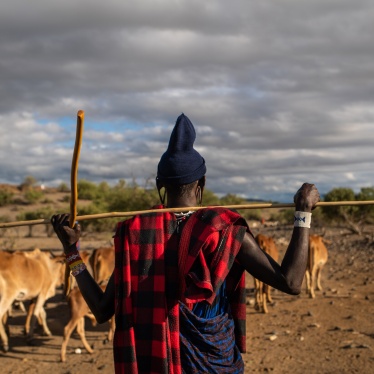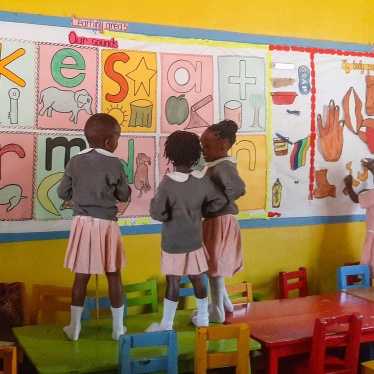The United Nations Security Council should insist that member states launch immediate investigations into the involvement of multinational corporations accused of profiteering from the war in the Democratic Republic of Congo (DRC), said a leading group of nongovernmental organizations today. The Security Council on Thursday will examine the final report of a Panel of Experts examining illegal exploitation of natural resources in the DRC.
The Security Council has failed to act on previous reports from the panel showing the link between the activities of multinational corporations and armed groups guilty of massacres and other atrocities. The war in the DRC is estimated to have caused the deaths of more than three million people, the highest death toll in terms of civilian lives since World War II. According to the Panel of Experts, established by the Security Council in June 2000, the drive to control natural resources was a major motive for the war.
"The Security Council can no longer ignore clear evidence linking the exploitation of resources to the war in the Congo," said the nongovernmental organizations. "It must insist that member states hold the companies and individuals involved to account, including companies based in Western countries. Business must demonstrate its commitment to change the way it operates in conflict situations."
Despite criticism of the Panel of Experts, its central findings have been corroborated by a growing number of independent reports. Human rights groups have recently concluded that the desire to exploit DRC's mineral and economic wealth has been the biggest single factor in the continuing violence in eastern DRC. Natural resources have been exploited by all warring parties allegedly to finance the war and acquire weapons, often resulting in widespread human rights abuses against civilians.
In an October 2002 report, the Panel of Experts alleged that 85 companies involved in business activities in Congo breached international norms, including the Guidelines for Multinational Enterprises formulated by the Organization for Economic Cooperation and Development (OECD). None of the governments participating in the OECD has yet investigated the conduct of any of the companies listed. Instead, several governments have pressured the Panel to remove from the list the names of companies registered in their jurisdictions or to declare that such cases have been resolved.
"It is not just the Security Council but also the governments of member states that must live up to their responsibilities," said the nongovernmental organizations. "They must conduct open and transparent investigations using the OECD process or other judicial procedures to clarify the role that companies have played in the conflict in Congo."
The Prosecutor of the International Criminal Court, Luis Moreno Ocampo, has stated that his office may also investigate the way businesses have contributed to the prevalence of war crimes and crimes against humanity in the DRC. The Security Council should ensure that information gathered by the Panel is made available to the prosecutor to assist in his investigations.
Since August 1998, the DRC has been enmeshed in one of Africa's most widespread wars, directly involving six other countries. The armies of Rwanda, Uganda and Burundi along with Congolese rebel groups were pitted against the DRC government, supported by Zimbabwe, Angola and Namibia. Under increasing international pressure, the bulk of the foreign armies have withdrawn from Congo in the past year but they left behind many vested interests and a network of economic ties. Illicit economic exploitation reportedly continues through armed groups linked to neighboring countries and corrupt government officials.
"The Security Council has heavily invested in the current fragile peace process in the DRC, but its efforts risk failure unless it also addresses the underlying economic motivations that have driven the war," said the nongovernmental organizations. "The council must follow through on the findings of the Panel of Experts."
_______________________
The group of international and Congolese human rights, environmental and aid organizations includes: Christian-Aid; Fatal Transactions; Friends of the Earth-United States; Friends of the Earth-England, Wales and Northern Ireland; Global Witness; Human Rights Watch; International Human Rights Law Group; International Peace Information Service (IPIS); International Rescue Committee; OECD Watch; Oxfam International; Pax Christi Netherlands; Save the Children UK; 11.11.11; CENADEP platform of Congolese organizations; Network of Human Rights Associations from South Kivu (RADHOSKI).







